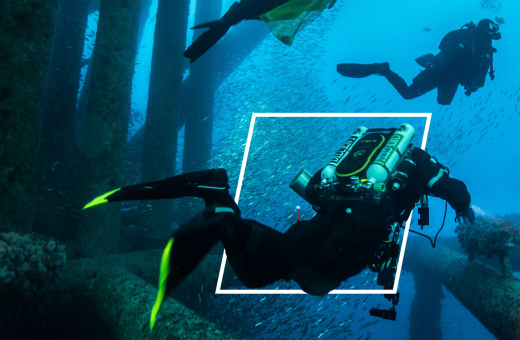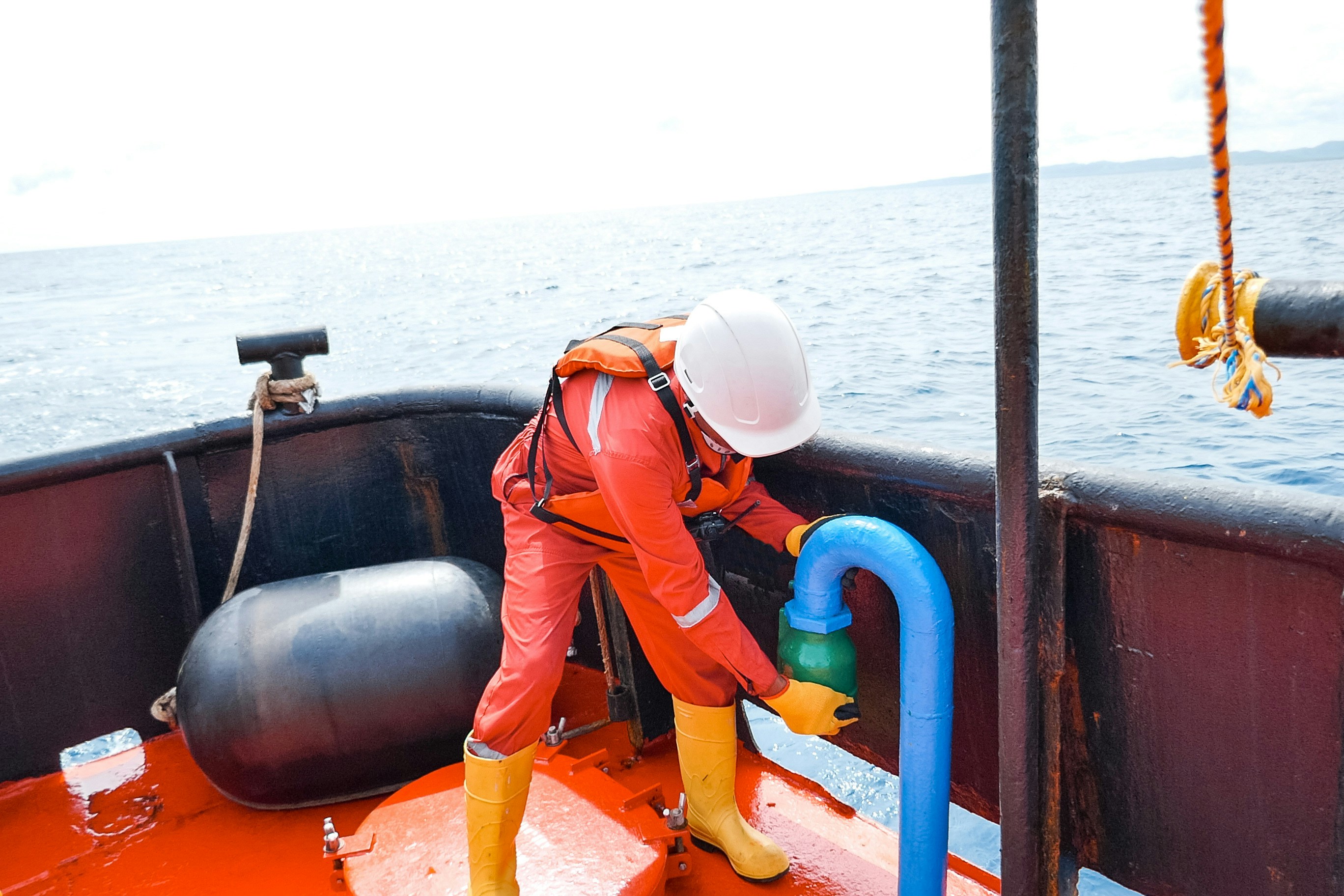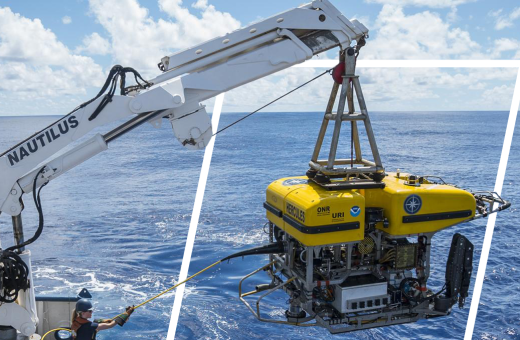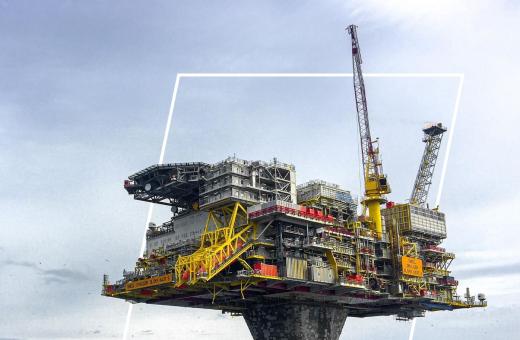The Increasing Safety of Diving Jobs
01 Mar, 202310 minutes
When the general population thinks of diving jobs, we often picture pearl collectors freediving into the ocean depths.
This is a terrifying prospect that intimidates many of us and therefore has been sidelined as a career we’d never be interested in. However, this is a false perception that doesn’t do the offshore sector any justice.
Top 5 diving jobs
Today, there are a few different diving jobs that are both safe and rewarding, like:
- Diving Technicians
- Commercial Divers
- Diving Tenders
- Dive Operation Specialists
- Diving Engineers
Any of these positions promise a life of adventure, occupying a role that is stimulating and invigorating.
Is it time for a career change?
How have diving jobs become safer?
Should you decide to look into getting a diving job, one of your first priorities will be reflecting on the danger posed to you.
Thankfully, in recent times, diving jobs are no longer as risky as they used to be - they’ve become safer and safer. How?
1. Legislation
Like a variety of different industries, regulation has been introduced to the offshore sector to protect the safety of employees as they work.
As such, certain qualifications need to be held by the person going into the water (at a minimum of CMAS 2 or 3 equivalence (Source: HSE)) and multiple boxes need to be ticked.
Annual health check tests have to be conducted, extensive risk assessments need to be made, and a supervisor must be present.
2. Remote Operated Vehicles
Before a diver is approved to do their job, the area is often scouted by an intelligent Remotely Operated Vehicle (ROV).
This is a recently developed technology that is getting smarter every single day. Its purpose is to identify potential hazards through sonar imagery to ensure the safety of the diver.
If any information is collected that suggests a project is deemed too risky by a Health and Safety Officer, an alternative approach will be designed.
3. PPE provisions
Alongside this, all employers legally have to provide their divers with quality PPE that will ensure their safety underwater.
This should be able to withstand extreme temperatures, light rubble, water pressure, and even the presence of dangerous chemicals.
This gear has to be tested before use, with backups at hand in case anything goes awry.
Every year, the PPE used by the offshore industry is becoming more and more advanced (making diving jobs even safer).
4. Detailed foreplanning
No longer are divers sent straight into the water without careful consideration.
According to the law, every detail of their venture has to be carefully strategised - considering a number of factors - and outlined clearly in a detailed plan.
The diver and their team need to be informed of the hazards so that they can make an educated and informed decision on whether to proceed.
As a part of this, when there are numerous risks present, medical professionals and first-aid equipment have to be easily accessible.
“The hierarchy of controls requires employers to first consider alternative control measures, such as scheduling diving activities during warmer months, construction of guards or screens, or draining the water from ponds, instead of relying on PPE alone to protect workers.” - WSCC
5. Extensive training
You won’t just be sent into the ocean on day one.
You’ll have to undergo multiple different courses and hold certain qualifications before your employer believes you’re ready to deploy.
While it’d be ideal if you started your learning before you applied for jobs in the industry, some entry-level positions might be suitable (depending on your previous experience).
In this case, you may get to attend sponsored, all-expenses-paid, lessons. On-the-job training might also be provided.
6. Team supervision
One of the most crucial parts of diving safety is having a team available on the vessel waiting to intervene if needed.
Their sole mission will be to watch over a diver while they’re submerged.
These individuals will all be appropriately trained to rescue you if something goes awry, reassuring you that your health and wellbeing will be cared for.
Additionally, rather than being sent in alone, a diver often has a partner to accompany them.
7. Aftercare
It’s not just the diver’s health during their undersea exploration that matters.
They need to be well looked after throughout the year so that they can perform well in those crucial moments.
A standard duty of care applies to divers just like it does to all offshore employees, where suitable accommodation, food, and fresh drinking water must be provided.
Schedules must be mindful of exhaustion levels and divers should be allowed to get plenty of rest between ventures - contributing towards their overall safety.
How to get a diving job
When it comes to diving jobs, the offshore industry has some of the best.
You’ll get to travel the world, participate in some incredible projects, and meet hundreds of interesting and passionate people - all while building an incredible career for yourself.
To either find a placement or receive further guidance about pursuing a diving career (and what you need to do to land a position), speak to Select Offshore today.
Finding Offshore Contract Jobs Through Select Offshore
Select Offshore are specialist recruiters that deliver reliable, communicative, and enthusiastic maritime professionals.
Is that you?
If you’re looking for exciting and competitive placements across any of our sectors, speak to us.
We can connect you with a company that cares for its human resources and recognises the importance of adhering to your rights.
Our team strongly believes in celebrating each of the individuals we work with, dedicating time to find them desirable offshore placements.
Contact us today to find out more.


